
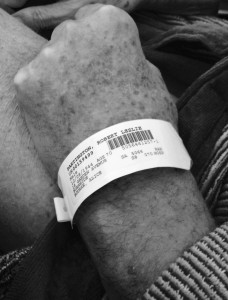
Today was one of the worst in my life. I visited Dad at the nursing home at 8.30am like I usually do,but today was different. I usually get handed my day by the registered nurse or a carer. My usual routine is to hunt down the first person I can find and say ” Goodmorning…Where are we at?”. The Nurse knows what I am looking for…Did Dad take his morning dose of Oxazepam? This drug is the saviour of any family with a person with dementia. It is the drug that settles the resident and calms them. The doctor allows us to have a PRN which is an extra tablet of Oxazepam which can be administered when the resident is highly agitated and aggressive. I went into Dad’s room and he was twisting up a bed sheet and I knew instantly what I was in for.
I went back to the nurse and said ” Can I have a PRN ready , I think I am gonna need it today”. Dad was pacing and coming in and out of his room. Before I arrived I did not realise he had already hit another female resident who had been crying and was very upset. The normally happy carer that knows Dad well was trying to have her usual light hearted banter with Dad. He was acting strangely and in a highly ‘amped’ sorta way.
I have been watching Dad’s body language on a daily basis for a year now and I didn’t like what I saw, He kept putting his hands out to grab people’s arms and would try and shake your hand but then try and crush your hand whilst looking you in the eye as though nothing was happening.
The carer had a small round fridge ice pack in her hand and whilst Dad was charading as a happy resident I knew damn well he was in that ‘dark’ mood where he could hurt someone. Dad reached out to the carer and she was laughing off his clumsy moves and touched his arm with the ice pack for a bit of light-hearted fun. Dad went a bit quiet and then grabbed the carer’s arms in almost a bear hug. It is not unusual to allow a resident to hug or embrace a resident, but this time I didn’t like the way his body was moving. It was jerky and tense and I could almost feel the tension he was putting on her arms. Before he could put the ‘real squeeze’ on the carer I reacted in a lightning fast manner and peeled his hands off of her. I had to use considerable force to release his grip and when I did the situation simply escalated out of control.
Dad let go of the carer and then turned his anger on me. He swung a big elbow at me, which luckily missed me. I then lunged for his arms to stop the immediate danger, but as I grabbed his left arm he raised his right arm in a very threatening manner and raised it above his head as he tried to ‘ hammer fist’ me to smash my arm away. i saw it coming and released my grip so he missed me again. I then grabbed both his arms with force to stop the frenzy. My mind was swirling but I was running on adrenaline and was hyped up for anything. Dad was wrestling with me and then bent forward at the waist. His head went down towards my arm and my gut instinct was that Dad was trying to bite me, his head was facing away from me so I could only assume this was what he was doing. I knew instantly that we had a major problem and that Dad was simply out of control.
Somehow we got Dad back to his room, I called for the male carer to hang around as I felt I needed him. He was reluctant but almost had to because he was the only person strong enough to help me. Dad continued to pace around the room in a highly agitated state. We are very specific when describing Dad’s behaviour as this determines what is written in the progress notes and daily report. We are used to writing words like ‘agitated’ or ‘slightly aggressive’, but today’s word was ‘violent’. This puts Dad in a new category where decisions have to be made for everyone’s safety, and things may be escalated if required. My single goal was to get some Oxazepam into Dad to settle him down. He had already refused his medication with the nurse before I arrived so I knew he was wound up already. I attempted to give Dad a tablet with water in my usual way and bribe him with a cup of tea afterwards. I knew I was going to fail today so the carers became creative. We decided to crush an Oxazepam and mix it into a half a cup of tea. We had never given it to Dad this way, but it was worth a shot. I grabbed the cup and a few biscuits and headed for his room.
I held out a biscuit to Dad to disguise the real reason I was in the room, to dose Dad up with the loaded cup of tea. Dad was smart and often instinctively knew when we were giving him medication hidden in something. A few days before I had placed an Oxazepam tablet inside a banana which I thought was really clever. When he took a bite he noticed the texture change and instantly spat out the banana and tablet into the toilet. Watching that tablet floating in the toilet bowl is heartbreaking. ( I did not want to waste the tablet as they are vital for bad behaviours).Today we used a cup of tea and as it was the first time we did it this way so Dad did not pick it. He normally slams down his brew and today was no exception. I breathed a sigh of relief as I knew he had swallowed it. I now had to distract him for 15 minutes while the drug took hold. I would talk about nothing, offer him biscuits, offer to play footy, but then I thought maybe a family photo album may calm him? I had Dad sit next to me on the bed and I would pick out random people and just create conversation to divert Dad’s thoughts. I went as slow as I could and Dad seemed to calm down and eventually lost the aggression and he moved towards the bathroom. I then decided that maybe a warm shower may have a further calming effect and as it was his normal morning routine he may comply and just go through the motions. Thank goodness Dad did just that. This routine saved me as there are many steps involved and Dad was completely distracted. Unfortunately the damage had been done, and the fact that he had hit a family member sent alarm bells with nursing home management.
The Head of Nursing Manager came over and watched through the crack in the bathroom door when I was showering Dad and she saw him at his worst. He grabbed a toothbrush and did his hair with it. I then had to clean his teeth for him (even open his mouth) and he simply did not know what to do. It was a new low point in his personal hygiene standards. The Head of Nursing Manager had been monitoring Dad closely and she knew that he was almost beyond their care. He had up to 8 aggressive incidents on report in the last two weeks and was escalating. Dad was now a danger to himself, family, care staff and other residents…action had to be taken. I even remember saying to carers in the heat of battle ” Dad has tried to hit and bite me…and I am family…..this is unacceptable”.
Once everything was calm again Dad returned to the ‘circle’ ( the resident’s lounge) where he conducted the music on tv and threw the footy to other residents. I was hiding behind a wall over Dad’s shoulder to ensure he did not flare up and hurt anyone. I observed him for probably half an hour and I was satisfied that the danger had passed and Dad had returned to his normal happy self. I then went to work but was in a zombie like state. I walked around Burnside Village trying to rationalize what had just happened. People would talk to me and I was vague, and I was unhappy with a staff member not watching the store properly but I was not in the right frame of mind to address the issue. I handballed this to the store team leader to fix. I also explained that we have family health issues and people will have to handle stuff.
Mum was at the nursing home with Dad and I was in regular contact with the Nursing Manager on the phone who was advising me of our options. She rang several agencies to help us and advised the doctor of progress. I was doing no work so I decided to head back to The nursing home to be with Mum. My instinct was to get everyone in the same room so we can discuss the next move. I was tired of passing on the story multiple times, and we needed a meeting to make the calls. The Manager joined us in Dad’s room and we had the conversation in front of him as he was clearly not listening. We were. closely monitoring his every move so we were comfortable talking in code in front of him.
It was decided that the Adelaide Clinic was the best course of action, however the protocol is that the resident has to be assessed at the RAH first. Due to our trauma there over 12 months ago, we were reluctant but knew we had to put the wheels in motion. The nursing manager arranged medical reports, doctor’s letters, pill charts and power of attorney info on our behalf. She was amazing and having her step through things was very comforting.
We tried to load Dad into the car but he was getting agitated, Mum was trying to remove baby seats as I tried to keep Dad off the road away from danger. He went towards my van and triedto get in, so I changed the plan and told mum to get in my van and I will drive to RAH. On arrival I was determined to make a scene at the entrance to get quicker attention for Dad. I dropped them off at the ambulance entrance and then parked the van. Security moved me on so I had to drive kilometres to get back to the hospital carpark. It felt like an eternity.
Mum and Dad were in the admissions triage of the RAH and everything was still fairly calm, but with the potential to flare. Straight away I assessed the room. We had two prison guards with one handcuffed to a prisoner in a green tracksuit. There was a bizarre looking lady with long dark hair who I thought may be a mad prostitute, and a couple of other people with more conventional injuries eg. Broken ankle etc
We waited about 30 minutes before we were called into the ER. Dad refused to get on a stretcher bed, so we walked alongside it. We reached cubicle 27 and this was our new temporary home. We had doctors,nurses and Registrars all talking with us. I connected with a male nurse , who told me he had worked in Dementia before. I latched on to him as he “get’s it”. We formed a bond instantly and he personally called for the best people in Geriatrics to look after us.It was almost like we were talking our own language and we could ‘cut to the chase’. The male nurse found me the doctor in charge. He was hard nosed, but trying to be compassionate. He had to make the big calls and was making them. We had limited medical options as Dad reacts badly to anti psychotics, so he could only have benzo’s. ( diazepam, etc). It is amazing how quick you pick up and adopt the lingo when in this pressure cooker environment.

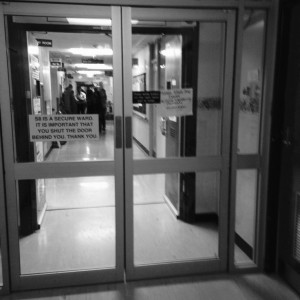
The doctor needed to get bloods and temperatures etc, but unfortunately this sent Dad into a rage. The nurse was able to get about a quarter of a syringe if blood, but was not enough. It was at this point that Dad started to thrash and was grabbing my hands and trying to crush them. The doc called for a code black and in under 15 seconds I had 6 burly guards bear down in Dad. The power enforced on his 69 year old body was unbelievable. I remember the ‘whoosh & thump’ as they all grabbed Dad and held in unison. I went from being under threat on my own to being under threat with up to 8 people watching. Mum was moved to another room as we struggled to hold Dad down. It went on for at least 15 minutes and Dad was still punching and trying to bite me. It was instinct to put my hand in his even though I knew he was going to try and break it. I guess his hands are the biggest indicator of where Dad was at. If he released his grip I would know he was settling.
The guard next to me near Dad’s head said through his mask ” We cant have 6 guys hold him forever” (it was 15 minutes I was told by a guard later) . A supervisor must have given the all clear for an intra muscular sedation injection. I was so busy at the head end that I never saw the injection given. He started to weaken eventually and the doc asked me to give him a Diazepam tablet. I had to force his mouth open and shove it in his mouth. Dad then went to sleep. We spoke with doctors and nurses over the next 45 mins and it was time for an x- ray. Dad was moved to a another ward and I noticed a different prisoner handcuffed to a bed. He was rattling the cuffs/chain which certainly keeps you alert.
I then had a young guy from the x- ray dept take me to an isolated room for a chest x-ray for Dad. I warned him that we had just had a code black and he needed to be careful of Dad’s hands as he will try and crush your hand if given a chance. The X- ray guy told me he was an MMA Fighter ( mixed martial arts) and could handle the situation without any problems. As soon as the film board went underneath Dad he rolled over and tried to crush the guy’s hand and tried to bite my wrist when I went to release his grip. He was thrashing, kicking and punching and I managed to block everything. As there was a commotion, their people joined in to help restrain Dad. It was a really public and moving circus as we dodged punches and kicks whilst Dad was in a moving bed. I remember seeing a group of 5 visitors all scatter for their own safety as they saw us coming. One lady was on the phone and had the most terrified look on her face as we passed by. She was barking down the phone what she was witnessing in real time.
Another Code Black was called and it was all hands on deck as we tried to restrain Dad. Eventually the male nurse in charge ordered me to step down as they needed to be more forceful and inject Dad again with more sedatives. I walked away past the visitors we scared and I stood alone facing the other way. The tears came and I was exhausted both physically and emotionally and in shock with what I just saw, and was involved in. I knew people were watching me, but I simply did not care. I had a polar neck knitted jumper on, which was soaked with sweat by the end of the ordeal. It was not exactly the best outfit to be wearing during such a physically demanding situation.
As I composed myself I turned to face the visitors and I apologised for what had just happened. I explained my Dad had Alzheimers and was not himself, and out of control. What happened next blew me away. Mum walked up to the large group of people with tears in her eyes. All the visitors were between us, and they showed some compassion once they knew what was wrong with Dad, and asked us some questions. The horrified lady who was on the phone then stepped towards Mum with open arms and gave her the biggest hug. She said to her “you look like you need this”. This was a really pivotal moment for us at an extremely emotional time, and made us feel good when we were so flat and upset.
We had gone from calm and joking in the waiting admissions area to full blown mayhem in an hour and continued to escalate. I will never forget the visions of Dad screaming out in pain, him trying to bite me and kick me and the restraint team forcing Dad to stay still. I remember sitting with Mum and saying to her “I think we made a really tough decision today, we may not feel it was a good decision , but it was the right decision”. ( taking Dad to hospital)
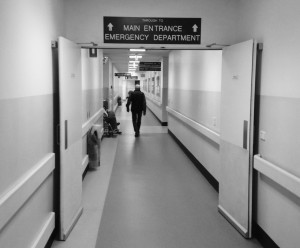
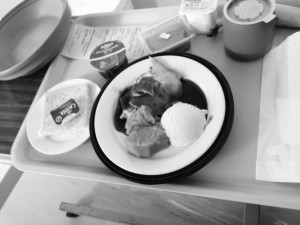



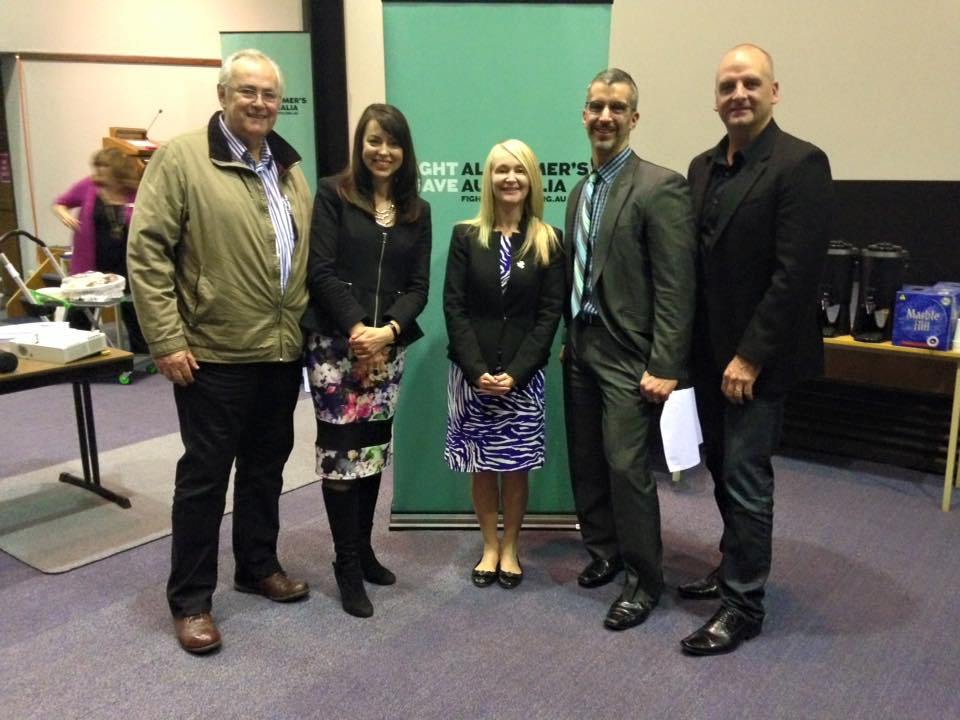
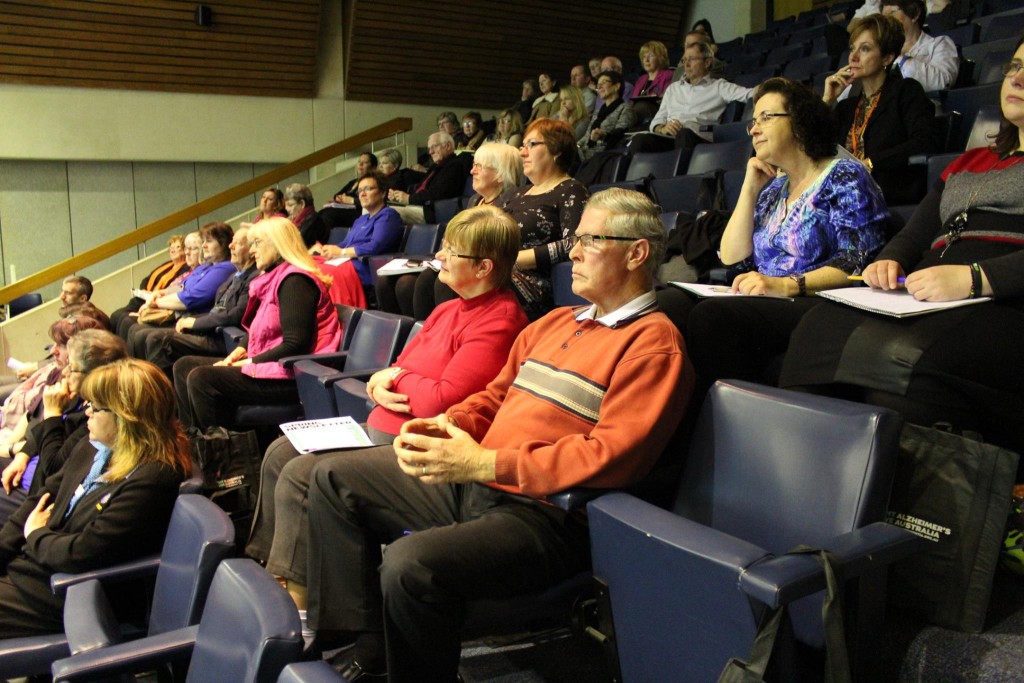
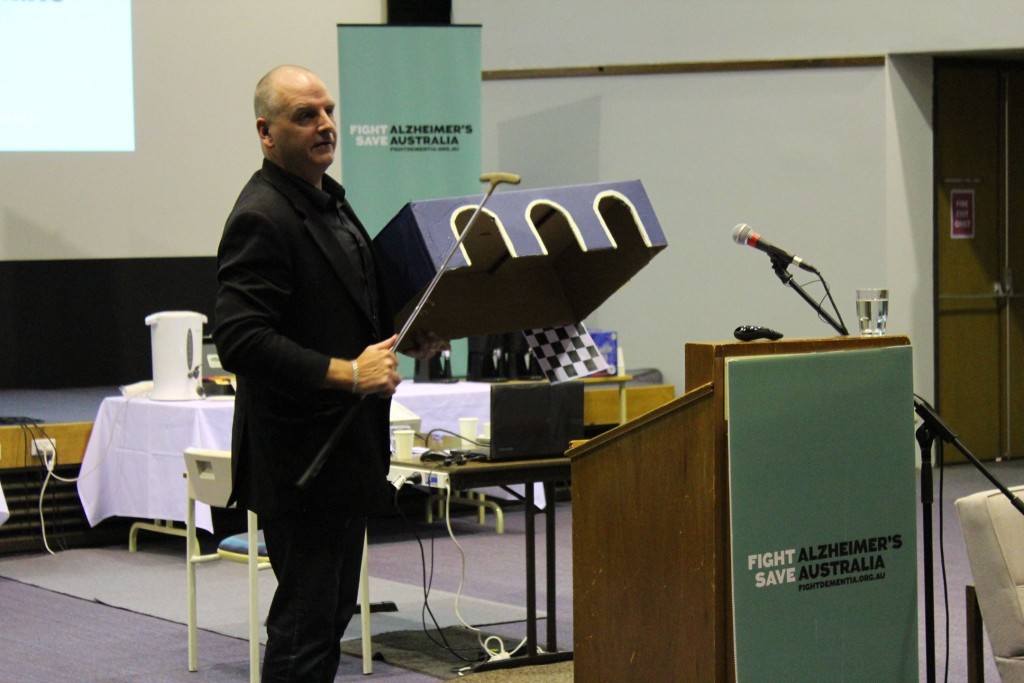
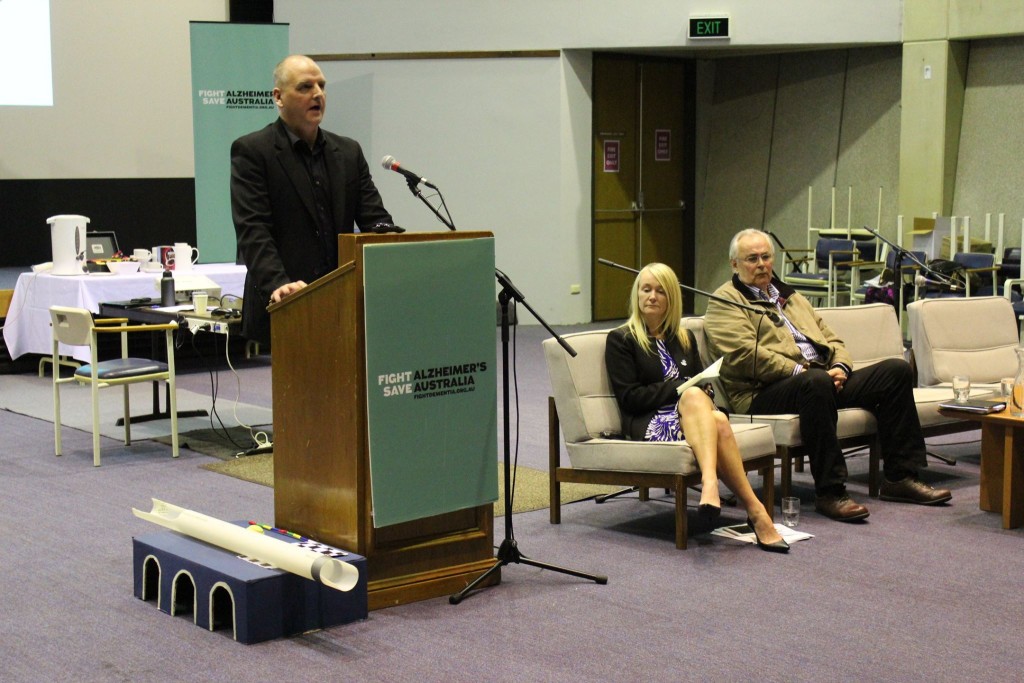
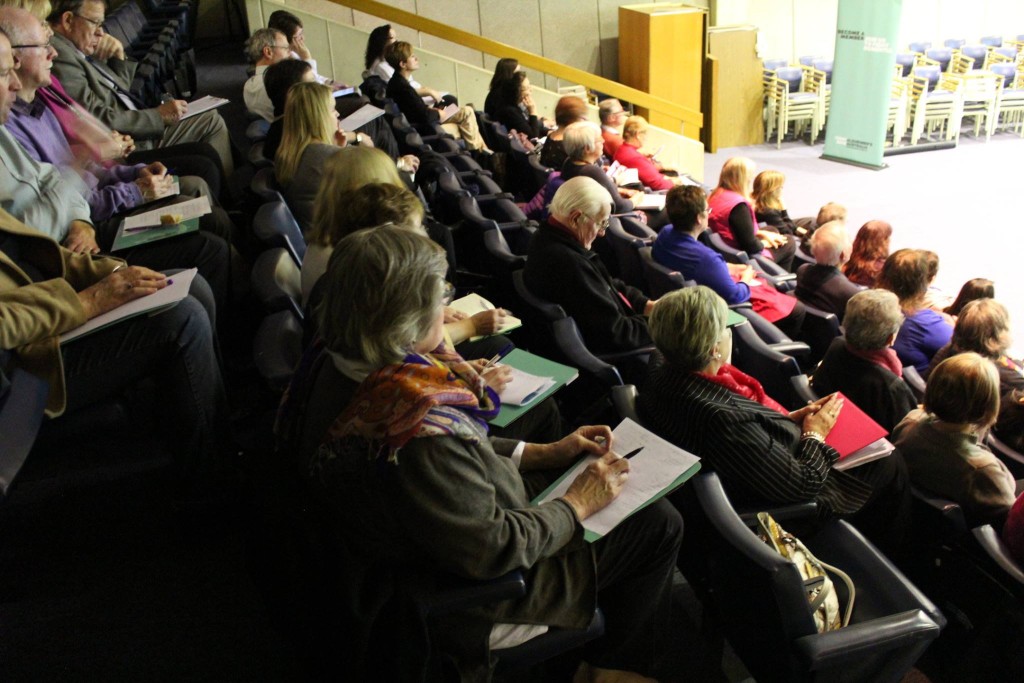



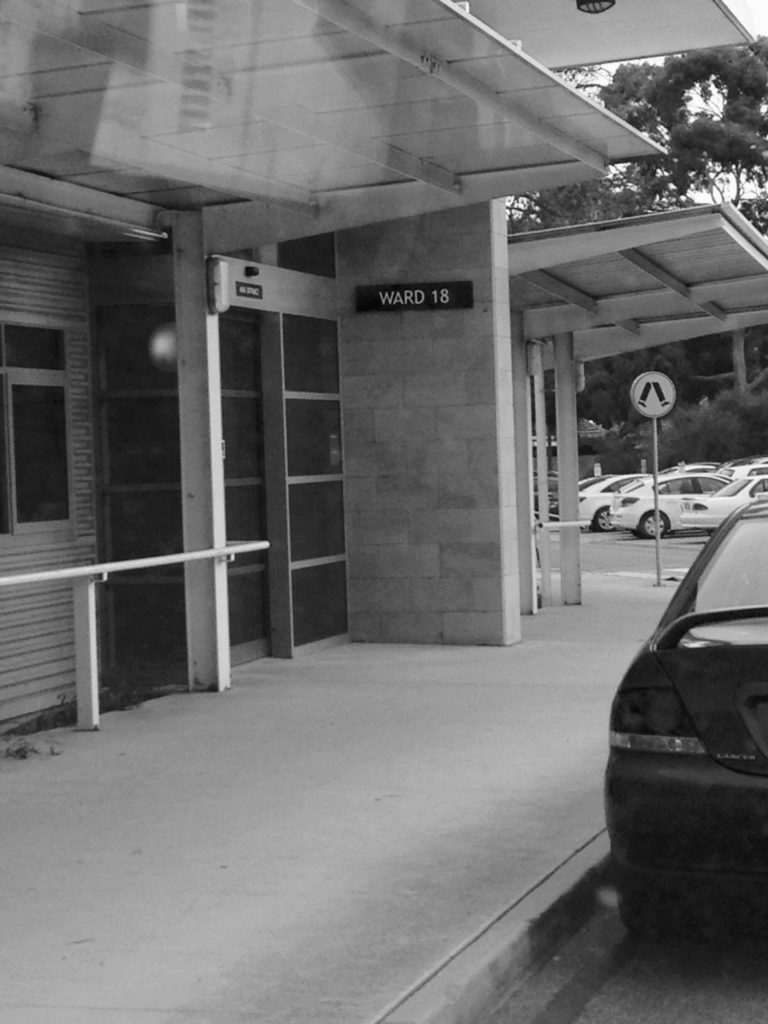


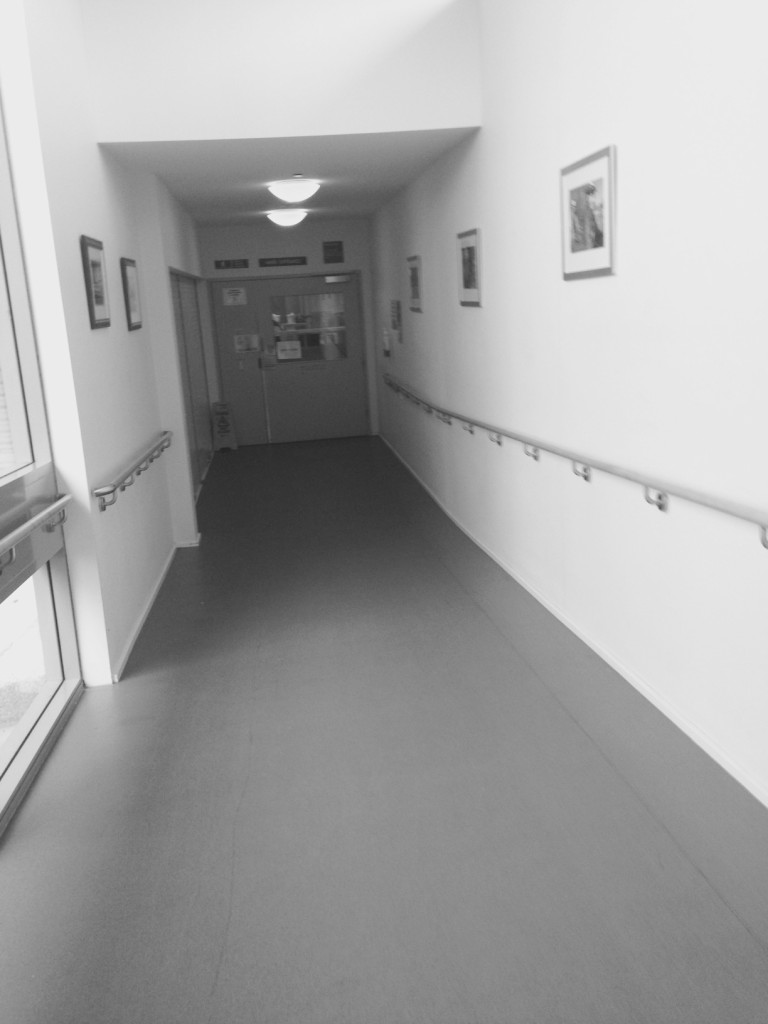












 Facebook
Facebook Twitter
Twitter LinkedIn
LinkedIn